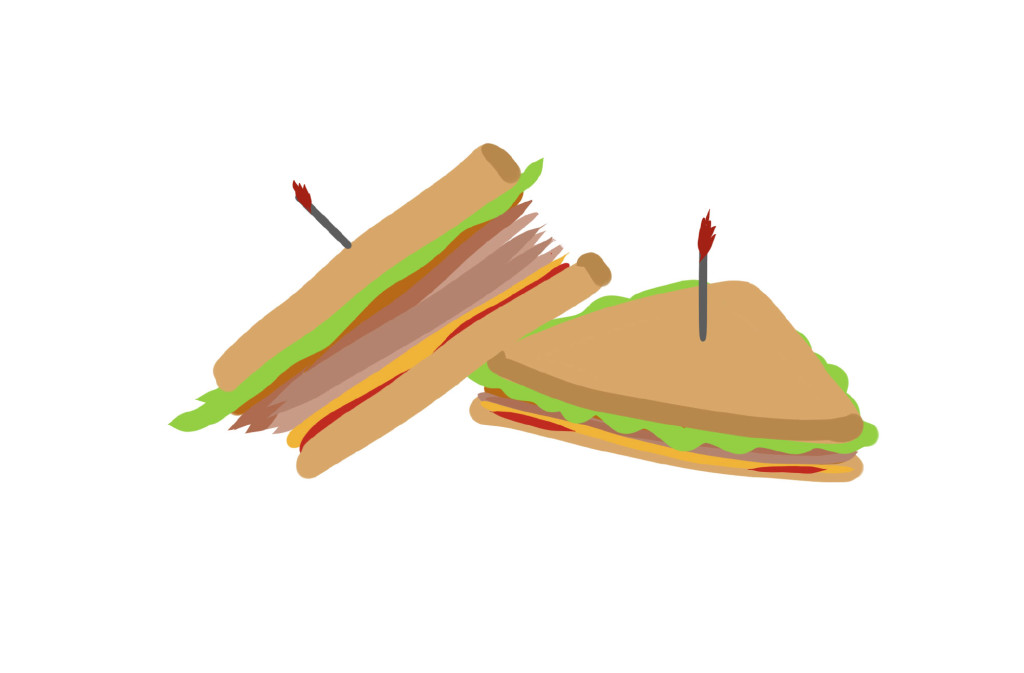Stocking up at The Cave in the basement of Campion Hall is a common practice among students at the end of the quarter. Items disappear off the shelves quickly as students rush to spend the remaining money on their meal plan.
This quarter, however, one freshman decided to take control of where her money is going. It won’t go toward extra boxes of Cocoa Puffs or copious amounts of Cup Noodles. In fact, she’s giving it away.
Like many students, Alita Campbell realized she would have a hefty amount of unspent money left on her meal plan toward the end of the quarter and she wanted to do something worthwhile with those extra dollars. Campbell decided to use the money to help those in need by ordering sandwiches from Bon Appétit Catering and passing them out to
Seattle’s homeless.
She posted on Facebook groups and even created a new Facebook page to get other students involved. The original post on the Seattle University Class of 2017 page accumulated over one hundred likes and Campbell told The Spectator in an email that she is estimating that around $3,000 will be put to use for her cause.
Like many other colleges across the country, Seattle U has a mandatory meal plan for all freshmen and sophomores—excluding special cases—with a minimum of $1,330, which comes to $17.27 per day.
General Manager of Bon Appétit Buzz Hofford said this amount comes from careful deliberation concerning how much spending is necessary to meet students’ needs. If need be, students always have the option of boosting their meal plan to a higher monetary value.
But for many, even the minimum is too much, and the same goes for many other students at other colleges across the United States. For some, the “mandatory” aspect is the real problem. Leafing through the opinion-editorials of college newspapers posted online, you can find articles titled “College Students Want Mandatory Meal Plans Abolished…”, “Alabama Students Fight Mandatory Meal Plans,” and “My meal plan costs how much?” Such headlines tell us that students are consistently faced with the problem of extra meal plan funds.
However, Hofford pointed out that compared to other institutions Seattle U’s mandatory minimum is on the lower end. Even so, there are still students scrambling to max out their cards at the end of the quarter.
Aside from the $100 rollover, leftover meal plan money goes straight into the school’s pocket if not spent by the students. But a certain amount of revenue is necessary to provide the services currently available on campus and ousting the mandatory meal plan would likely result in a scaling back of services and variety.
While it’s unfortunate some students might have to spend more than they’d like to, Campbell took it upon herself to make the best of it.
According to Campbell, the idea was inspired by her Poverty in America class with Professor Brendan Busse, S.J.
“It has opened up my eyes to the immense struggle people in our country experience daily,” Campbell said. “I’ve found that most people, including myself, put up a wall between themselves and those who are homeless. We just don’t know their stories. They had countless experiences that led them to where they are. Just like you or I. I just wanted to think of some way to give back and I had been thinking about what to do with my extra meal plan money for a while anyway. It just seemed to fit together.”
Campbell and the students who joined her effort ordered sandwiches from Bon Appétit Catering and will be donating them to local food banks, though they originally planned to hand them out themselves on the streets of Seattle before winter break.
Freshman Mackenzie Webster was one of the students to respond. Before seeing Campbell’s Facebook post, Webster had been toying with the idea of giving her leftover dollars to a friend, but was more inspired by Campbell’s call to action.
“I understand that they can’t just give us our money…that makes sense to me,” Webster said. “But I do wish sometimes that the school had it so that there was a way for us to get some of it because, you know, it is future debt that I am going to have to pay.”
Webster added that she will probably get a smaller meal plan in the future.
However, if she ends up with leftover meal plan money in the future, she will continue to donate it.
Similarly, freshman Stefani Lakic is planning on lowering her meal plan next quarter—she too is committed to using the extra money in a philanthropic way from here on out.
For Lakic, the mandatory minimum was a strain this quarter. She fell ill from food-related intolerances and ended up not being able to use a considerable amount of her meal plan.
“Things happen and I wish there was something to account for that better,” said Lakic about her remaining funds. With the medical bills she is facing, “$700 in my pocket would be really helpful right now,” she said.
The $3,000 Campbell expects to collect will buy about 400 sandwiches
for distribution.
Hofford added that Bon Appétit also works to help the community by donating unsold and unserved food. Last year, about 5,000 pounds of Bon Appétit food was given to a nonprofit food distribution agency called Food Lifeline.
Only time will tell if passing the plate will become a Redhawk tradition.









